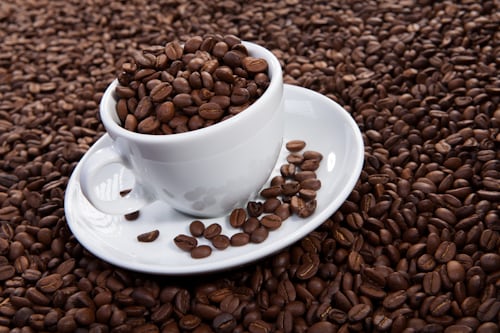What’s the deal with hormones?
Have you ever wondered why you feel like eating? Signals the brain receives from the body helps control how much we want to eat and when. Ghrelin, otherwise known as the hunger hormone, is one such signal.
When the stomach is empty, ghrelin (produced in the upper part of the stomach) is released and indicates to the brain that you need more food. When you eat, the stomach stops releasing it. It is important to understand that the level of ghrelin in your bloodstream changes throughout the day and is lowest after eating.
With this in mind, perhaps it’s no surprise that research shows sleep patterns can influence the production of ghrelin. Those deprived of sleep tend to have higher ghrelin levels and are therefore more hungry compared to adults who get 7-9 hours of sleep a night.
At worst, this can become a self-fulfilling cycle of not getting enough sleep and overeating. Being tired from not sleeping leads to an increase in appetite and cravings. As a result, you overeat and make bad food choices such as processed foods, high in sugar that causes your insulin and blood glucose levels to spike before crashing. Then, you feel fatigued once again, and the cycle continues.
What we can do to get better sleep at night?
Thankfully, this cycle is not unbreakable, and given that most of us go through it from time to time, there’s nothing to be alarmed about.
Whilst trying to manage a busy life, it’s understandable to want to go for quick wins that provide the most benefit. Diet, exercise and sleep, however, are so intertwined, it’s not possible to say which is most important. As with most things, there is unfortunately no one size fits all method – we are all unique. Here are some general tips for improving sleep hygiene through diet and exercise.
1) Avoid caffeine
Sweet nectar of the gods. As much as this has fuelled genius throughout the centuries (Balzac would get by on a mere 55 cups per day when he was writing), the stimulant will naturally keep you awake and can stay in your body a lot longer than you think. If you are going to drink it, definitely try and keep consumption to morning.
2) Exercise
Moving about, whether a light walk at lunch or an intense session in the gym will help improve your sleep. Regular exercise is even better. However, avoid working out just before bed, as you don’t want to raise your heart rate before trying to sleep.
3) Don’t eat too late
Just like consumption of a stimulant like caffeine before bed is unwise, eating too late doesn’t give your body the time it needs to digest large meals. Try having dinner a few hours earlier instead.
4) Drink more water
During the day, dehydration can cause fatigue, making you feel less alert. Not only might this mean you choose to eat something in an attempt to gain a quick fix of energy, but if you go for a nap, you might struggle to get to sleep at night. Another bonus of drinking more water is that you need to go to the bathroom more often, increasing movement.
5) Eat light meals rather than heavy ones
Having heavy, high fat, rich meals at lunch and dinner is not the best idea. Think about how bloated and saggy you feel after Christmas dinner or Chinese New Year. Instead, aim for something lighter, with ½ plate of non-starchy vegetables, ¼ plate protein and ¼ plate of nutrient dense complex carbohydrates.




